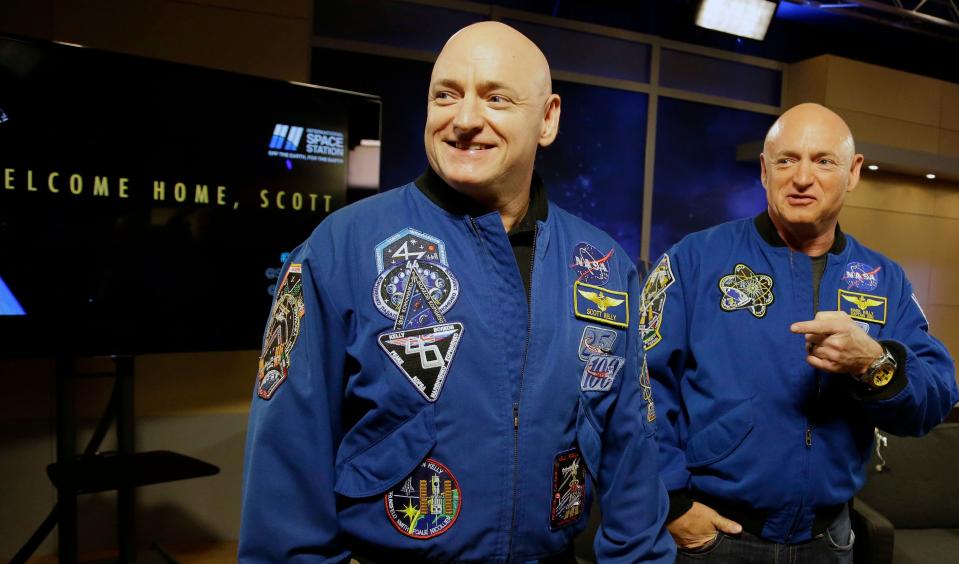Life in outer space: NASA studies health changes between astronaut twins Scott and Mark Kelly

Space travelers in movies may zip around the universe with no ill effects, but in reality we have no idea how humans will react to being in outer space for years on end.
Now, new NASA research released Thursday said that astronaut Scott Kelly's year in space aboard the International Space Station apparently didn't bring him any notable health issues.
Thus, NASA said that human health can likely be "mostly sustained" for a year in space, and bodes well for even longer treks to Mars.
From 2015 to 2016, Scott Kelly became the first American astronaut to spend almost a full year in space. During that time on board the space station, though he experienced a few temporary changes to his weight, eyes, immune system and genes, most everything returned to near-normal a few months after returning to Earth.
One odd change was in Scott Kelly's telomeres, the protective ends of chromosomes. Those tips gradually shorten as we get older, but in space, his telomeres got longer. Another difference was that the activity of many of his genes – how they switch on and off – changed.

But NASA didn't just study Kelly's health during that year, they also compared his molecular, cognitive and physiological health effects in space to those of his earthbound twin brother, former astronaut Mark Kelly, who remained on Earth.
"Scott Kelly provided a test case to measure in space with Mark Kelly providing a baseline test case on Earth," NASA said.
Overall, the study said there were no long-lasting, major health differences between Scott and Mark.
NASA called the experiment a first-of-its-kind opportunity to track the biological consequences of spaceflight in genetic doubles.
Jennifer Fogarty, chief scientist of the Human Research Program, said that the study "demonstrated how a human body adapts and remains robust and resilient even after spending nearly a year aboard the International Space Station." She said the data from the study "will be explored for years to come.”
Looking ahead, NASA said Scott's one-year mission "is a stepping-stone to longer expeditions such as missions to Mars, which could take three years for a round trip."
But there was a caveat: Being in Earth's orbit is very different than being in outer space: For example, during his time on the space station, Scott remained within the protection of Earth's magnetic field and wasn't exposed to the potentially harmful radiation of deep space. In addition, longer trips to destinations like Mars would include higher degrees of isolation and confinement, along with altered gravity fields.
The research involved 10 separate studies supported by 84 researchers across 12 universities, all coordinated by NASA's Human Research Program.
Results of the NASA Twins Study were published Thursday in the peer-reviewed journal Science.
Contributing: The Associated Press
This article originally appeared on USA TODAY: Life in outer space: NASA studies health changes between astronaut twins Scott and Mark Kelly
